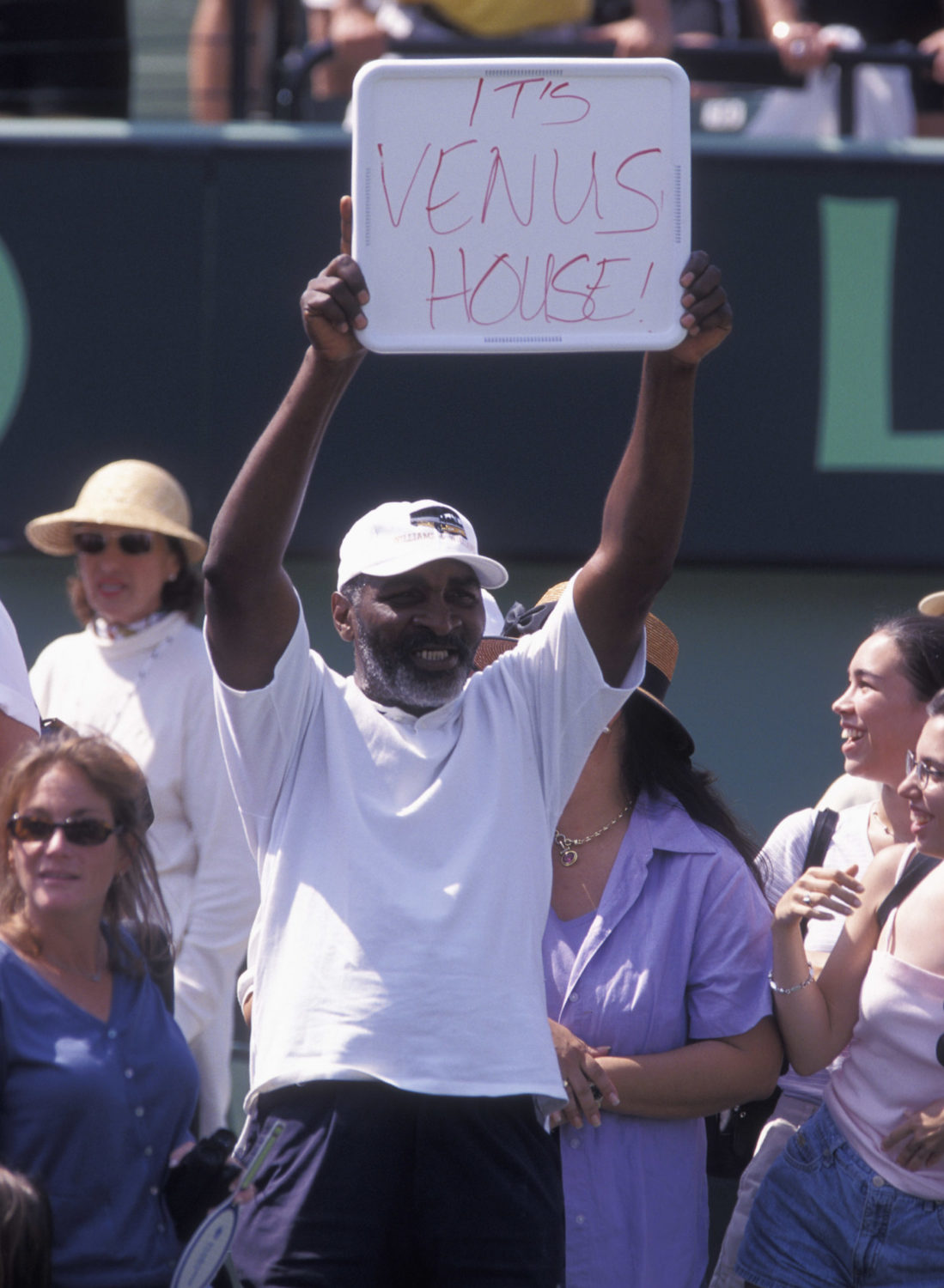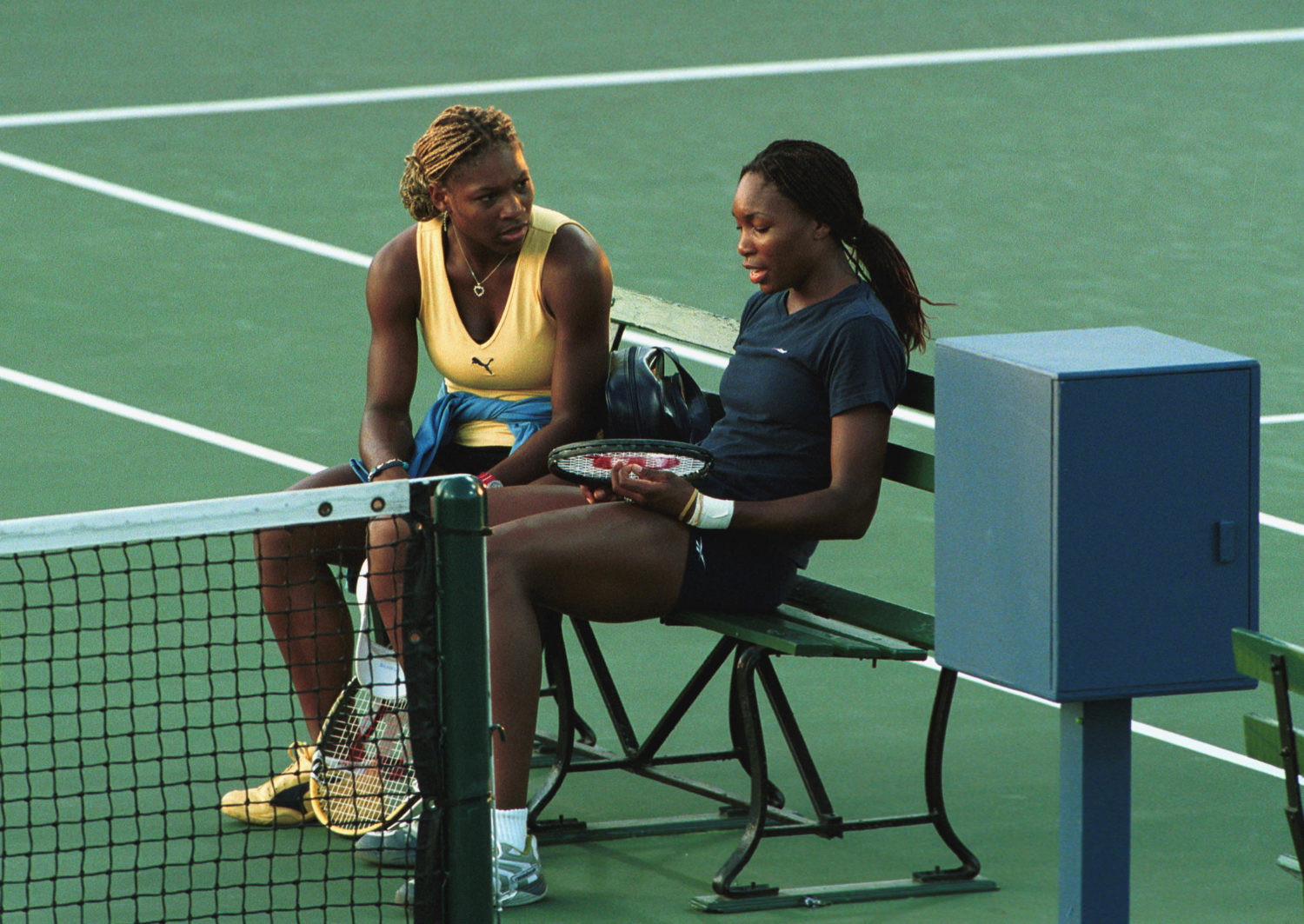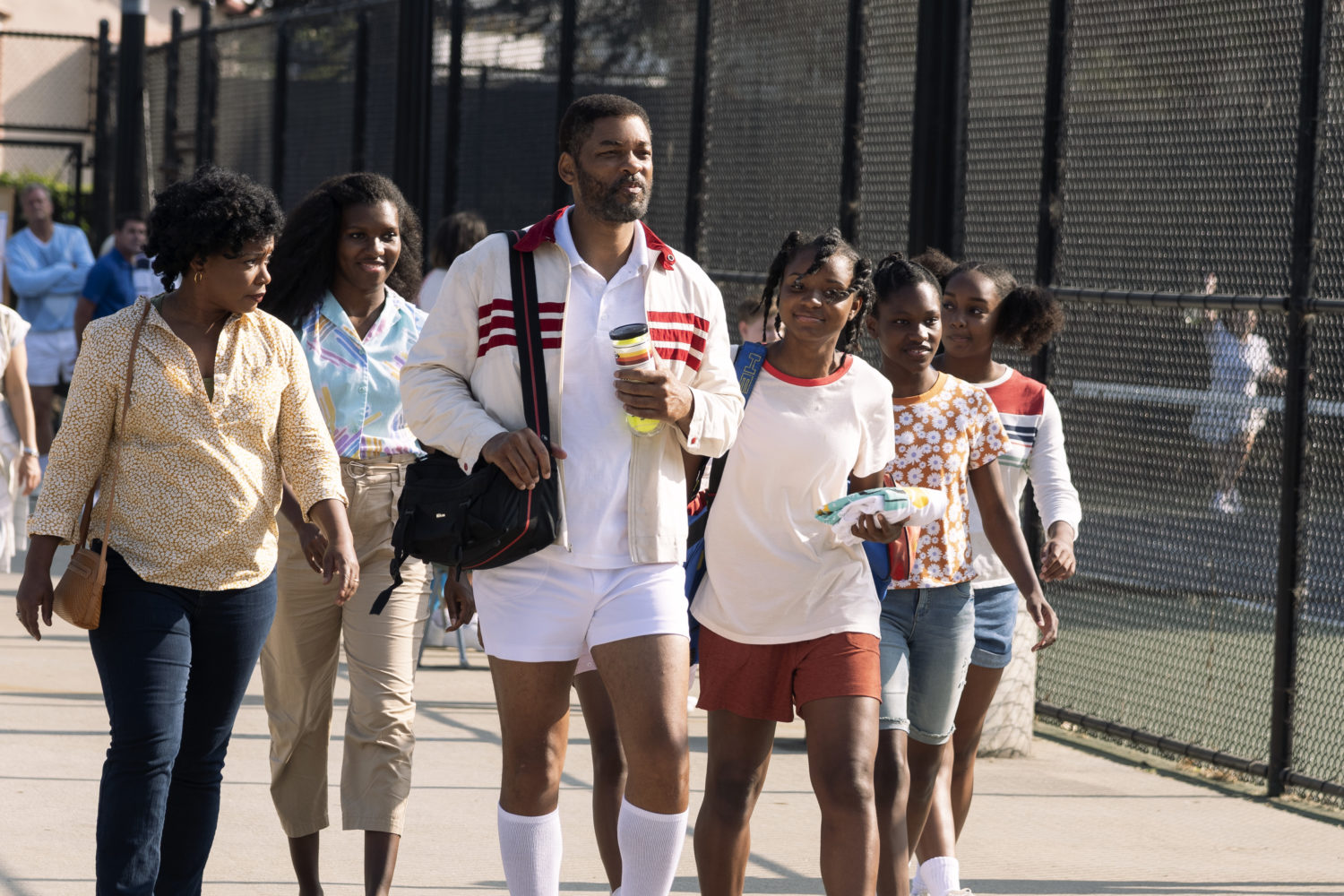King Richard

It was an honour to be invited by Warner Bros and Organic Publicity, as part of an intimate audience, to watch on 12 October 2021 at Warner House, Warner Bros HQ, London a private screening of the much-awaited film King Richard – a biopic of Richard Williams, the father and coach of Venus and Serena Williams. The film premiered at the London Film Festival on 15 October 2021 and is out on worldwide release from 19 November 2021. Now that the worldwide embargo has been lifted, I’m delighted to share my review of this film.
It has been three days since I watched the film, and I am still replaying some of the scenes in my head. It is simply captivating. Will Smith is masterfully mesmerising in the title role, and I couldn’t take my eyes off his nuanced performance – the expressions, voice, and stooped gait are pure genius and Oscar-worthy. Having read Richard Williams’s autobiography, I recognised some of the re-enacted scenes in the film. Richard Williams wrote a 78-page manifesto before Venus and Serena were born, setting out how he was going to raise two champions. Smith manages to add humour to the intensity in scenes such as when he visits tennis coaches at exclusive country clubs, telling them about his manifesto and how his daughters are going to be the best tennis players of all time. Any actor playing this role needed to have bucketloads of the Richard Williams charisma, and Will Smith certainly delivers!
The film’s executive producers – none other than Isha Price, Venus, and Serena – lend it further gravitas so this is as close to the real story as we can get! It is truly a family affair. Sister Lyndrea Price has contributed via costume design (it must have been fabulous to source those colourful tennis outfits from the 90s – my favourite tennis era!). For me, the slightly bittersweet moment was realising that the late eldest sister Yetunde would undoubtedly also have been in these credits were she alive today.
Saniyya Sidney and Demi Singleton are also perfectly cast as young Venus and Serena respectively. The resemblance is uncanny, and no detail is overlooked, including the tennis technicalities. As a lifelong fan of Venus and Serena, I’ve observed and admired their distinctive strokes that set them apart from any other player I’ve seen. I was therefore awestruck to notice that even mechanical details, like Venus’s characteristic tucked-in take-back on her double-handed backhand, Serena’s serve toss, and those trademark drive volleys, have been replicated by the actors. This must have taken some serious training! Oracene Price’s position in this story is emblematic, and credit must go to her for bringing much needed balance and calm in ushering these two girls into the world, not least for helping Serena with that famous serve toss. Yes, it was Oracene who helped with this, not Richard, as we learn!

Rick Macci is played by Jon Bernthal – the charming, energetic tennis coach who Richard Williams negotiated a contract with to coach his daughters – first Venus, then Venus and Serena. There is good chemistry betwteen Bernthal’s and Smith’s characters, who re- enact various pivotal moments of the story, which are as funny as they are heart-warming. One such moment happens when Richard Williams invites Rick Macci to the “Compton Country Club” to watch his daughters for the first time. Macci soon discovers that he is, in fact, entering a gang-ridden public park in Compton, with Richard Williams allegedly promising him that he won’t let Macci get shot! Other scenes provide insight into the inevitable coaching clashes between both men. During Venus’s coaching sessions with Macci, Williams doesn’t hold back on expressing his views and insisting on the open stance.
The tennis cinematography is immersive. I found myself cheering during Venus Williams’s professional debut match against Arantxa Sanchez-Vicario, before realising that I was in a private screening room watching a film, and not a tournament in sunny California! Other cleverly shot pieces include a scene showing Richard Williams and family entering an exclusive Florida country club. The camera pans across to show us the juxtaposition of a black family from Compton, California, entering a lily-white world – a scene accentuated by blonde tennis protégés dressed in tennis whites. Just a few seconds of this camerawork provides an immediate sense of what exactly the Williamses were up against as a black family entering a predominantly white, middle class environment. In another scene, a 1994 version of Venus, with the iconic beaded hair, emerges from a dramatic dark tunnel to enter a court. This gave me goose pimples, as this is the Venus that I remember first seeing, the Venus that, together with Serena, made me a lifelong fan. This film is their legacy.
When the film ended, I overhead two women behind me. One told her companion, “I didn’t expect to watch so much tennis, there was more tennis in this movie than I expected. I don’t usually watch tennis but watching this film and understanding this story has made me realise I need to start playing tennis!” If everyone who watched the film felt this way, Richard, Venus, and Serena Williams have surely accomplished one of their missions – to inspire everyone to play, regardless of who they are and where they come from.
The sheer beauty of the film is that this story hasn’t ended yet. This is a story that will continue long after the celluloid reel has ended, and one in which the main characters continue to reap the rewards of their hard work to this very day.
Venus and Serena, I eagerly await your next chapter, both on and off court.
Story published in Courts no. 2, autumn 2021.
